Thousands of hectares of vegetables and fruit trees along Lam River were buried after the historic flood. People gathered their spirits to overcome the consequences.
After the flood, in addition to collapsed and washed away houses, thousands of hectares of vegetables in Western Nghe An were buried, broken, barns, canals and ditches were damaged...
Fields turned to mud
The riverside areas in western Nghe An were severely damaged after the historic flood. The floodwaters receded, leaving behind mud and rocks; many areas of corn, peanuts, and vegetables along the alluvial plains could not be restored.
People stood among the desolate fields, heartbroken as months of hard work were washed away in an instant. The canal infrastructure here is also completely paralyzed.
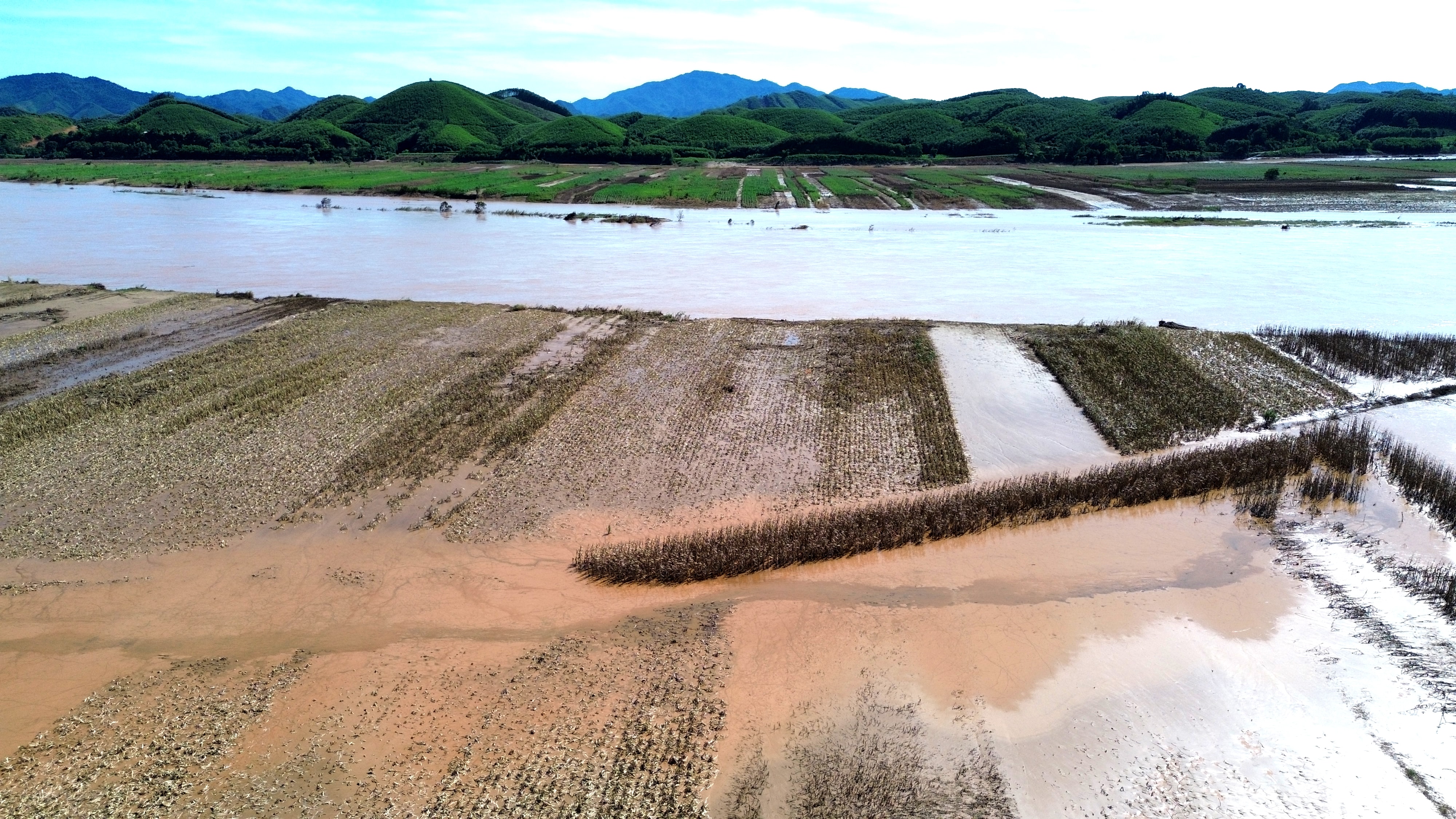
In Nhan Hoa commune (formerly Anh Son district), Ms. Nguyen Thi Huong could not hide her tears as she looked at her corn field buried in mud. “Just a few days ago, my 4 sao of corn had just started to flower, but unexpectedly the flood came and washed it all away. The 3 sao of sugarcane above were also deeply submerged, the stalks were all broken and fell. Everything was lost,” Ms. Huong sadly shared.
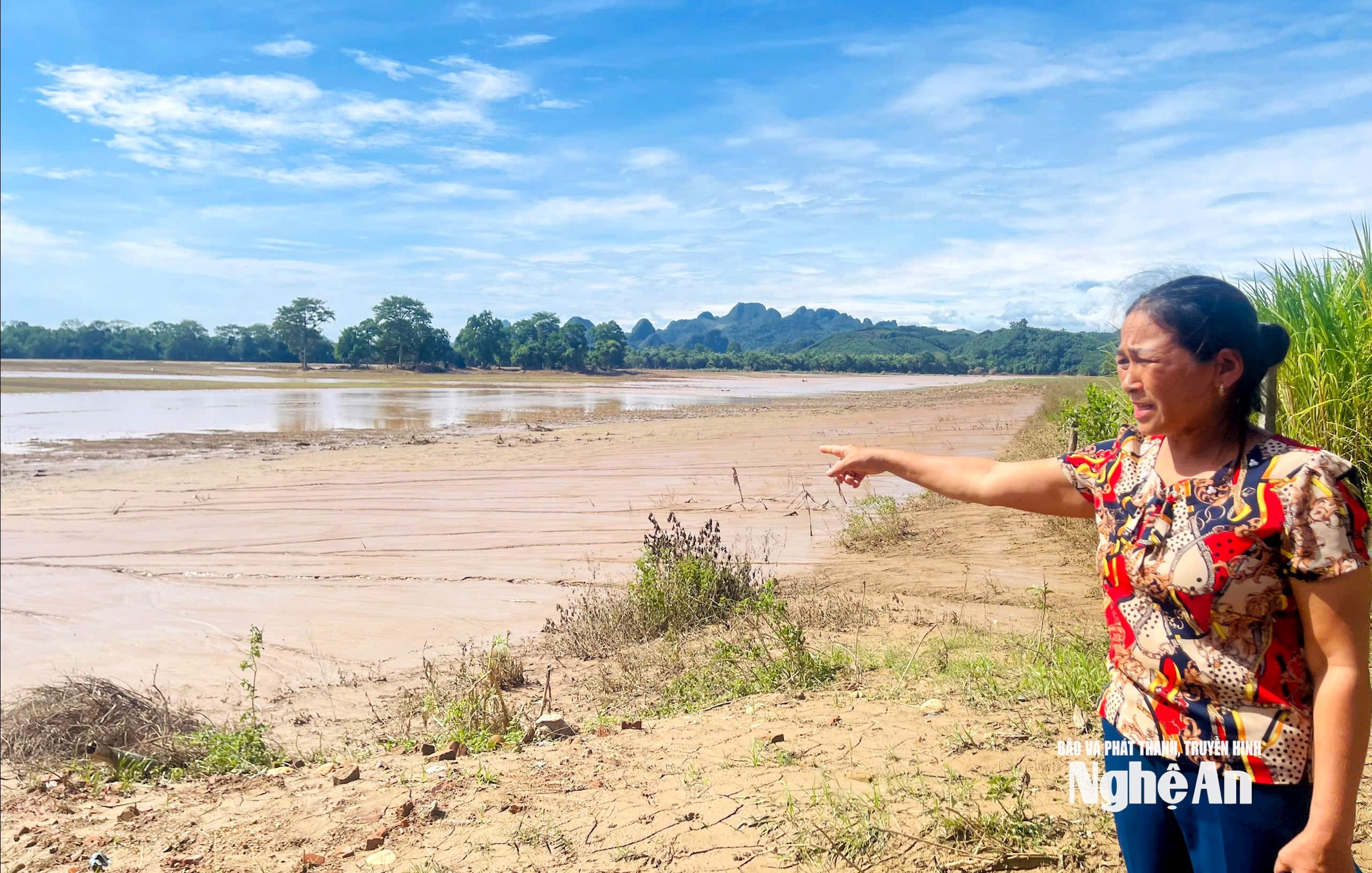
Nhan Hoa commune - once considered the crop granary of the western Nghe An region, now has more than 256 hectares of corn, peanuts, and vegetables severely damaged. The hamlets of Dong Tien, Quang Tien, Dao Lam, Bai Say, and village 4... are almost submerged in mud.
Mr. Dang Dinh Luc - Chairman of Nhan Hoa Commune People's Committee said: "We are mobilizing youth and militia forces to clear ditches and free up production land, but many areas covered with thick mud have not been able to be repaired yet."

Arriving at Con Cuong commune, we clearly saw the reality of vegetable fields and fruit gardens buried in mud. Ms. Lo Thi Lan in Khe Ran village said that more than 2 sao of corn planted along the stream were washed away by floodwaters in just one night of heavy rain. "The corn was about to be harvested, but now all that remains is mud and rubbish," Ms. Lan said.
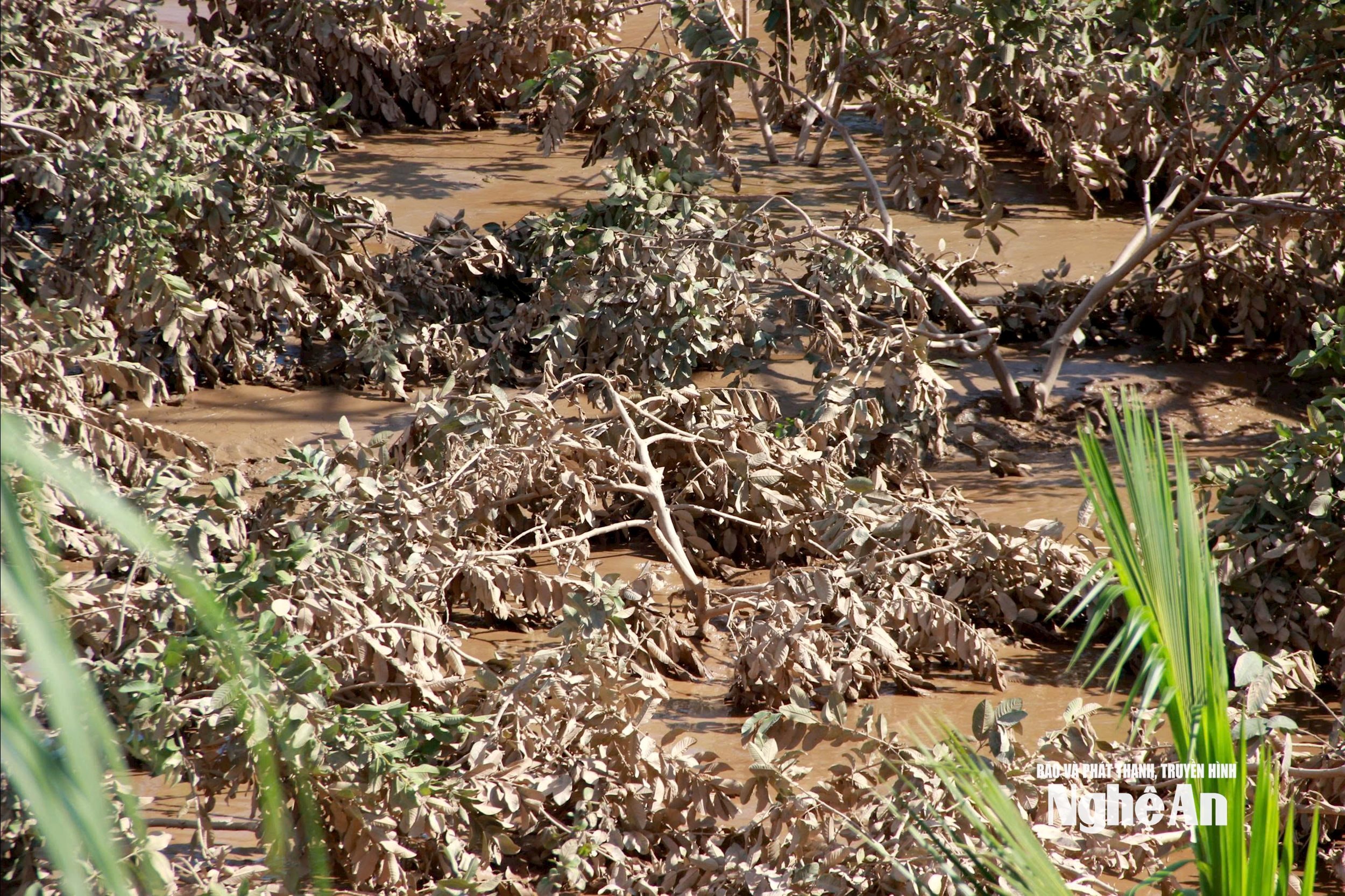
Mr. Tran Anh Tuan - Chairman of the People's Committee of Con Cuong Commune said: In the recent flood, the locality suffered heavy damage in the agricultural sector. The rice area was affected by 250 hectares, of which 220 hectares were completely lost. The perennial crop area (acacia) was 80 hectares, with over 70% damage. 111 hectares of annual crop area was damaged, of which 30 hectares had 100% damage, the rest had 30-70% damage. The vegetable area was 80 hectares, with over 70% damage. 748 livestock (buffalo, cow, pig, goat) were killed and swept away. 12,250 poultry were killed and swept away, and many aquaculture ponds were flooded.
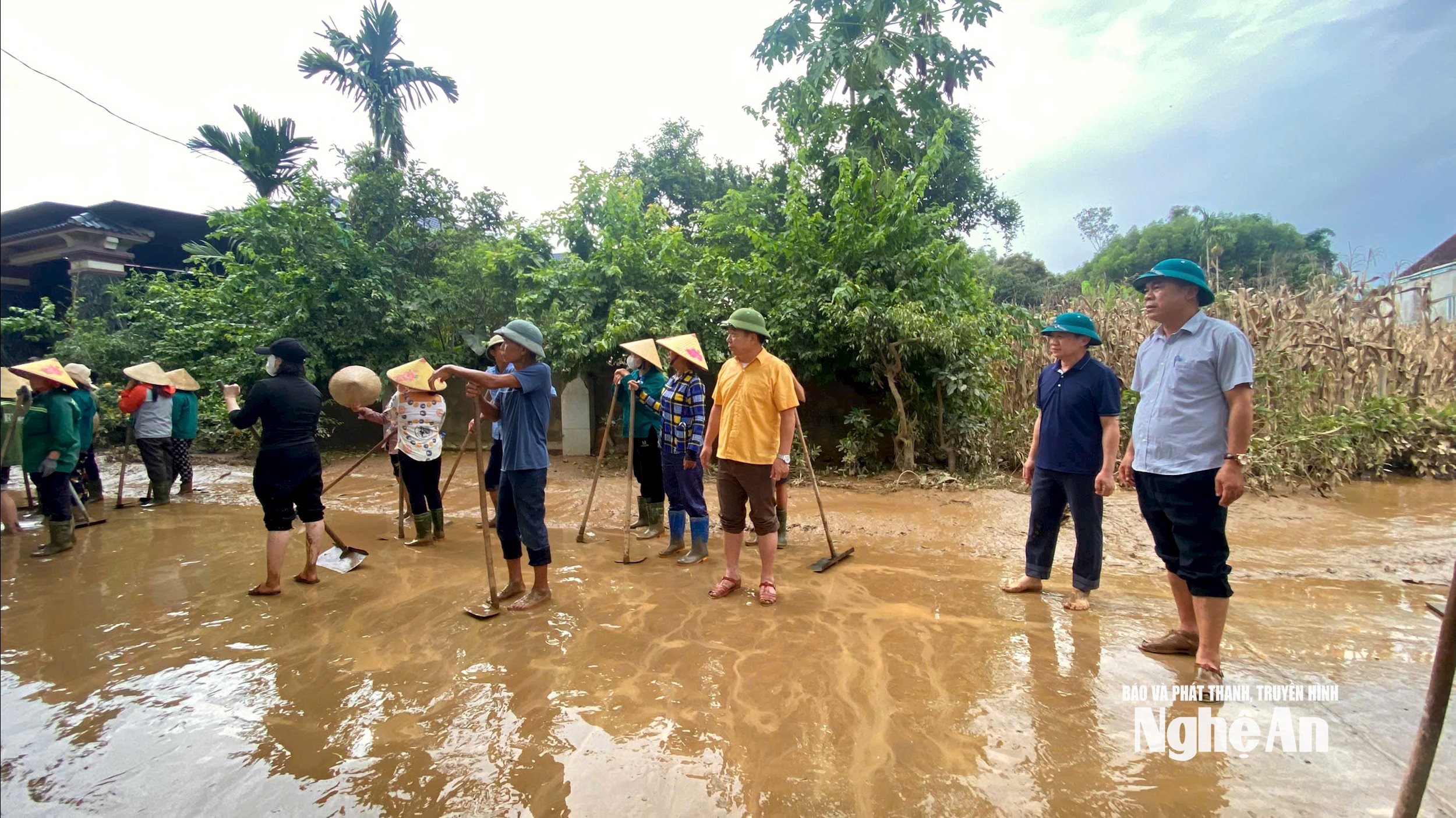
In the field, it can be seen that along the Lam River alluvial plains through Nhan Hoa commune, Con Cuong commune, Vinh Tuong commune... all the corn and sugarcane fields are covered with mud, in many places the mud is up to half a meter thick, making cultivation difficult in the future. The image of the green fields of the past is no longer there, now it is just a long gray-brown color.
.jpg)
Widespread damage
According to quick statistics from the Standing Office of the Steering Committee for Natural Disaster Prevention, Search and Rescue and Civil Defense of Nghe An province, as of July 29, 2025, the total damage to agriculture is very large.
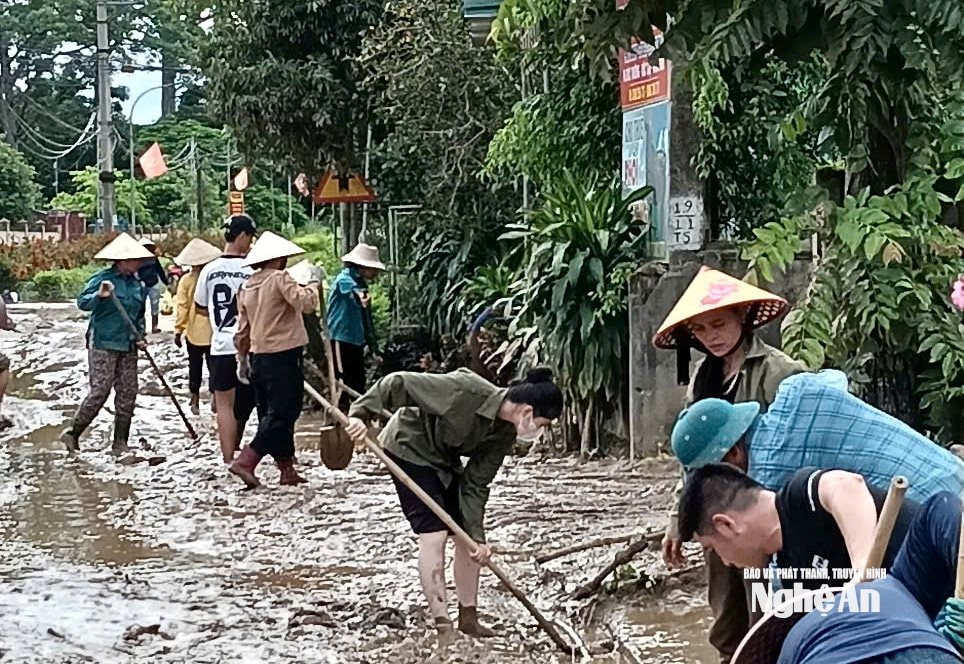
Specifically, the estimated damaged rice area is about 3,346 hectares, 181 hectares of seedlings, of which the majority were completely damaged. In addition, 3,220 hectares of other crops were also flooded and buried, mainly short-term crops such as corn, peanuts, vegetables, sweet potatoes... The damaged annual crop area is 2,522 hectares. The damaged perennial crop area is 236.4 hectares. The damaged concentrated fruit tree area is 145.5 hectares. The damaged planted forest area is 991.6 hectares.
Along with that, the livestock industry was also affected when 1,380 cattle and over 59,000 poultry were swept away or died due to floods.
Meanwhile, agricultural infrastructure has also suffered significant damage. A series of irrigation works have been damaged, dam slopes have collapsed, canals have been filled up, and drainage culverts have been damaged, disrupting irrigation and production services.
Some localities such as Muong Xen, Tuong Duong, Tri Le, Con Cuong, Nhan Hoa communes... are the areas that suffered the most damage due to the production land along rivers and streams, which are prone to landslides.
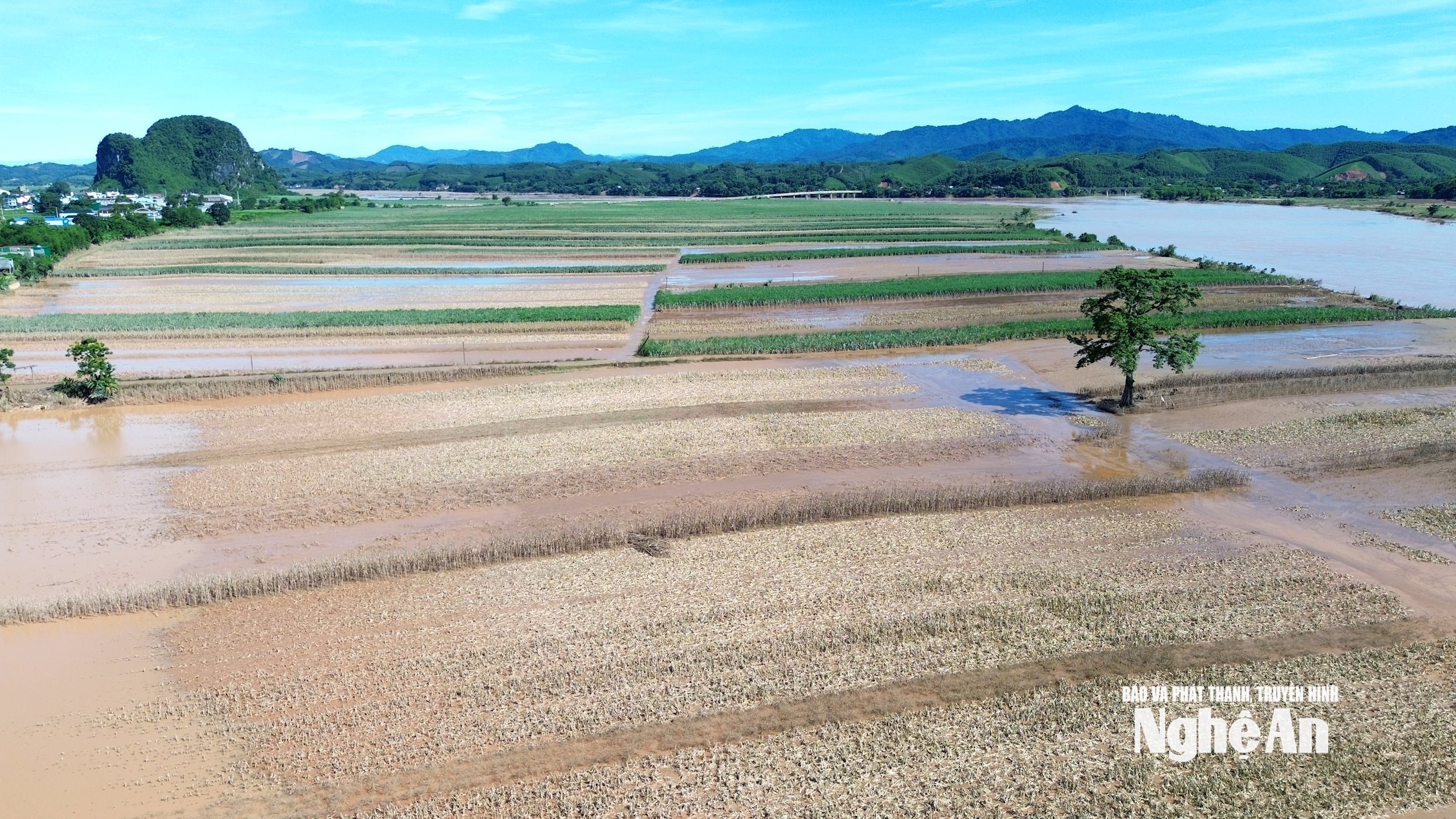
In the face of the above situation, the People's Committee of Nghe An province has directed localities to focus on mobilizing forces to support people to overcome the consequences and restore production. Solutions such as flexible crop conversion, support for seeds and agricultural materials will be considered for urgent implementation in the coming time.
Crop damage in the communes of Western Nghe An is not only a material loss, but also a great mental trauma for farmers after months of hard work on the land and fields. At this time, each relief gift and each heart of sharing is a valuable support for Western Nghe An to overcome the disaster.

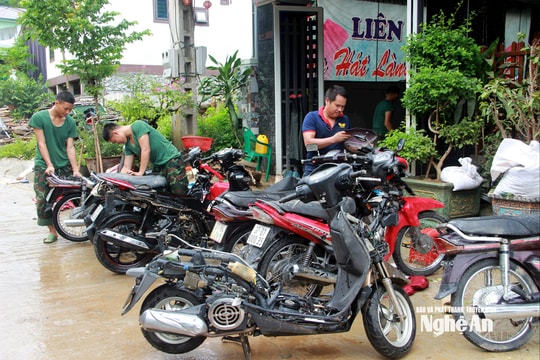
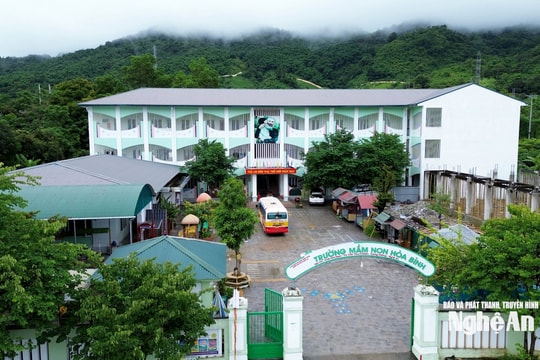
.jpg)

